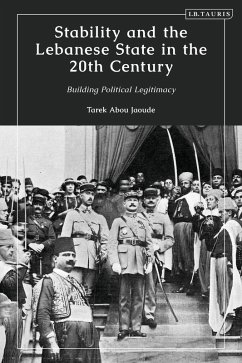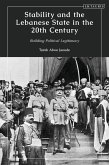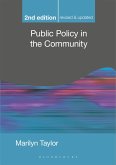Explaining state-building failures in Lebanon during the 20th century, this book looks at the relationship between legitimacy and stability in the country since the creation of the state in 1920. The presence of legitimacy is considered necessary to any successful state-building endeavour. This book argues that the Lebanese state failed to achieve any meaningful form of legitimacy from its inception in 1920 to its near-collapse during the civil war. However, by analysing different eras of Lebanese history, throughout the different presidential terms, the author challenges the general understanding of stability and governance to show that the absence of legitimacy and society support actually contributed to the persistence of the Lebanese state. More than this, the evidence shows that Lebanese state was at its most stable when it was regarded as illegitimate. The wider, implicit question thus asked in the book revolves around a case where illegitimacy within the state is what ensures its stability and survival.
Based on primary sources including national archives and collections, institutional documents, personal memoirs, newspapers and journals, this book provides a rich survey on the development and functioning of Lebanese political institutions.
Based on primary sources including national archives and collections, institutional documents, personal memoirs, newspapers and journals, this book provides a rich survey on the development and functioning of Lebanese political institutions.









